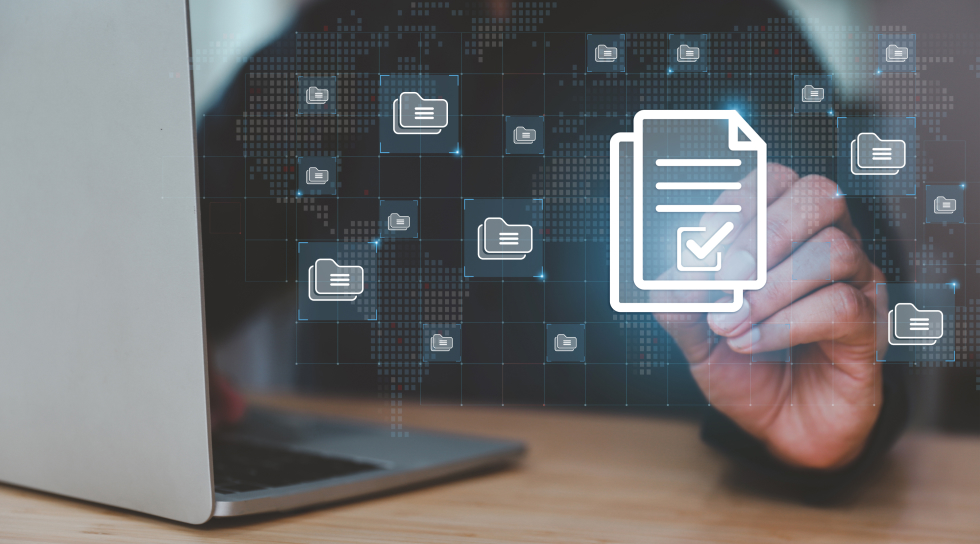By Ashley O’Malley, HR Director, CloudSphere
If you’re a Human Resources (HR) leader in the tech sector, or any industry for that matter, artificial intelligence (AI) is likely not a new concept for you. What once was a novel idea to assist with recruitment and hiring efforts is now an integral part of HR.
In many ways, the close relationship between AI and Human Resources has redefined traditional HR practices. As organizations increasingly embrace new technologies to manage their human capital, new ways of doing business have emerged and resulted in HR efficiency, personalization, and data-driven decision-making.
Today, AI-driven recruitment platforms have streamlined talent acquisition processes, while personalized learning paths are revolutionizing employee training and development. Feedback mechanisms powered by AI algorithms are fostering a culture of continuous improvement, while tools for monitoring employee wellbeing are promoting a holistic approach to workforce management.
And while many advancements have been made in the Human Resources field, artificial intelligence in 2024 promises even greater enhancements for HR professionals, such as:
- Recruitment precision
- Training effectiveness
- Performance management
- Employee wellbeing
- Predictive data and insights
- Ethical artificial intelligence
Read on to learn more about the current trends shaping artificial intelligence in HR and how future advancements are set to redefine the way organizations attract, retain, and develop talent in the years to come.
Top 6 Trends in AI and HR
As AI has evolved, certain trends have emerged specifically within the Human Resources industry. In this section, you’ll find info on where these trends currently stand, as well as how each of them is likely to develop throughout 2024.
Trend #1: AI-Powered Recruitment and Talent Acquisition
To enable recruiters to identify top talent efficiently, AI algorithms are currently being utilized to analyze a range of materials that used to be reviewed manually, including:
-
- Resumes
- Cover letters
- Job descriptions
- Candidate profiles
These algorithms assess the potential fit of an individual, predict job performance, and even automate initial screening processes, reducing time-to-hire and improving recruitment outcomes.
2024 Predictions:
By the end of the year, it’s possible that AI-powered recruitment platforms will evolve to offer even more accurate candidate matching. Advanced Natural Language Processing (NLP) capabilities may enable systems to understand nuanced language and context, allowing for better alignment between candidate skills and job requirements. Additionally, predictive analytics models may become more sophisticated, forecasting not only job performance but also cultural fit and long-term career trajectory.
Trend #2: Virtual Assistant Onboarding and Training
AI-driven onboarding platforms currently provide personalized training modules based on employee roles, skill gaps, and learning styles. Virtual assistants powered by AI can assist new hires with tasks like:
-
- Onboarding checklists and materials
- Answering common questions
- Enabling a smooth integration into the organization
2024 Predictions:
It’s possible that in 2024, personalized learning paths may become even more sophisticated. These platforms can dynamically adjust content and delivery methods based on individual progress, feedback, and real-time performance data.
Integration of Virtual Reality (VR) and Augmented Reality (AR) technologies could offer immersive training experiences, allowing employees to practice skills in simulated environments, enhancing learning outcomes.
Trend #3: Automated Performance Management
AI algorithms can analyze performance data to identify patterns, trends, and areas for improvement. Continuous feedback mechanisms powered by AI foster a culture of transparency and growth, enabling timely interventions and performance coaching.
2024 Predictions:
In 2024, AI-powered feedback systems may incorporate advanced NLP and sentiment analysis for more nuanced feedback delivery. These systems could provide actionable insights tailored to individual strengths and areas for improvement.
Trend #4: Preventative Employee Wellbeing
AI can currently monitor employee wellbeing indicators in real-time. This can help HR professionals detect signs of burnout or disengagement. Personalized wellbeing programs offer resources, activities, and interventions tailored to individual needs, promoting a healthier work-life balance.
2024 Predictions:
AI algorithms for employee wellbeing may become even more proactive this year. In addition to detecting early signs of stress, these systems could offer tailored interventions. AI-driven virtual assistants could also provide more detailed personalized wellbeing recommendations, fostering a culture of holistic employee wellness.
Trend #5: HR Analytics and Predictive Insights
AI-driven analytics platforms currently aggregate HR data to generate actionable insights and predictive models for workforce planning. These models forecast workforce trends, identify retention risks, and anticipate skill gaps, enabling proactive talent management strategies.
2024 Predictions:
To offer more granular insights, predictive analytics models could continue to evolve in 2024. Advanced machine learning algorithms may analyze historical HR data to uncover deeper patterns and trends, informing strategic workforce planning decisions with higher accuracy. AI-driven simulations may also be employed to forecast the impact of various workforce scenarios, enabling organizations to better prepare for future challenges.
Trend #6: Ethical AI in HR
Efforts are currently underway to ensure fairness, transparency, and accountability in AI-driven HR systems. Organizations are implementing ethical AI frameworks and guidelines to mitigate biases, uphold data privacy, and promote diversity and inclusion in recruitment, performance management, and decision-making processes.
2024 Predictions:
HR professionals who leverage AI may further prioritize ethical considerations this year. Enhanced algorithms and tools could be developed to address concerns around bias mitigation, algorithmic transparency, and data privacy protection. Organizations may also implement advanced techniques, such as adversarial testing and fairness-aware algorithms, to identify and mitigate biases in AI models.
Additionally, there could be a greater emphasis on promoting diversity and inclusion through AI-powered recruitment and talent management practices, ensuring equitable opportunities for all candidates and employees.
Conclusion
Advancements in HR through the evolving nature of AI promise to revolutionize the way organizations attract, develop, and retain talent. Recruitment precision, training effectiveness, performance management, employee wellbeing, predictive data and insights, and ethical AI are all trends that will likely drive organizational success in the rapidly evolving digital age of 2024 and beyond.
How CloudSphere Can Help You on Your Journey
CloudSphere makes digital transformations easy by offering automation and clarity of IT estates. We empower our partners and customers to Discover, Plan, Migrate, Optimize, Modernize, and Secure entire cloud environments with automated features that save businesses time, money and disruptions.
Book a Free Demo
About Ashley O’Malley
As a seasoned employee success professional with over a decade of experience, Ashley derives her energy and passion from making employees successful.
Her role at CloudSphere provides comprehensive, high-quality, customer-focused HR support across a broad range of human resources’ activities, delivering on the HR and Business Strategy of CloudSphere. The role is highly commercial and operational and Ashley is responsible for the team member base across US, UK, Ireland, France, and India.
Connect with Ashley on LinkedIn.


